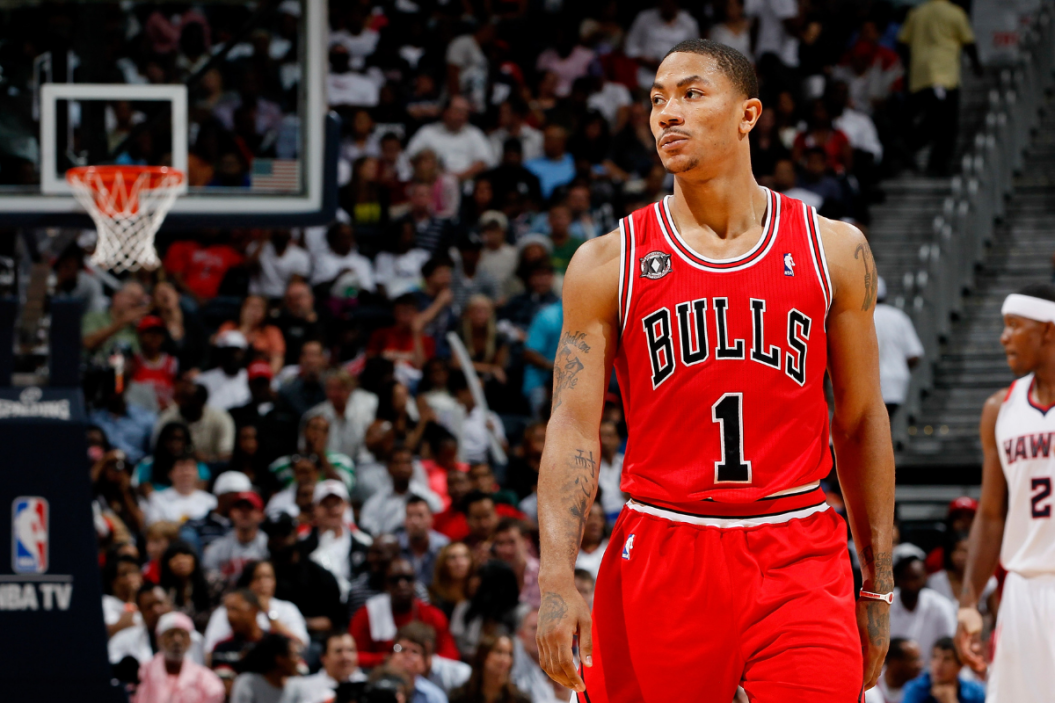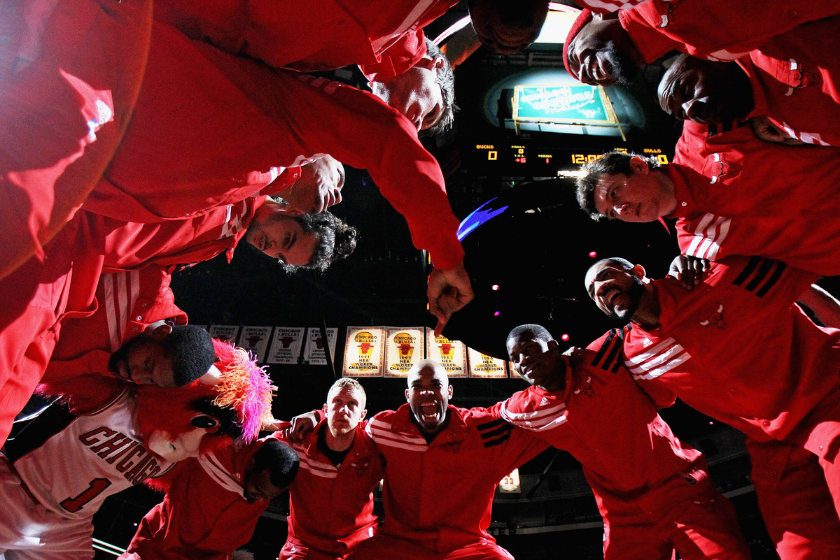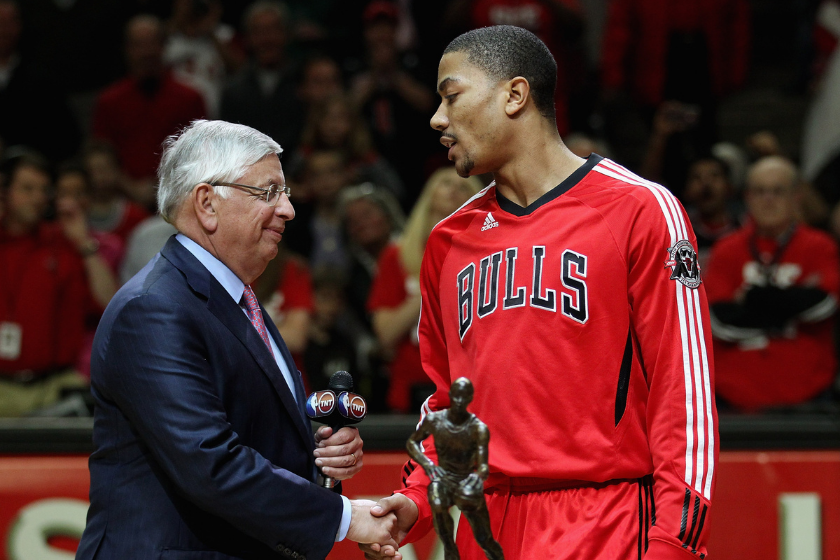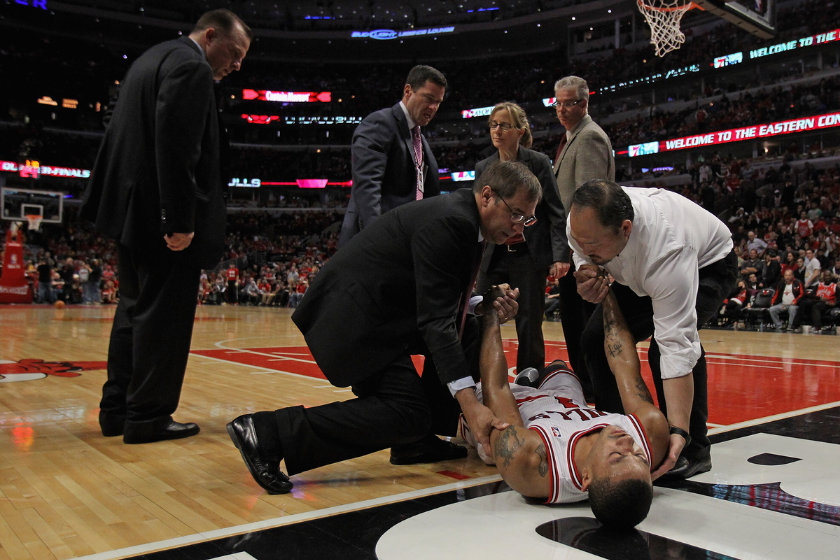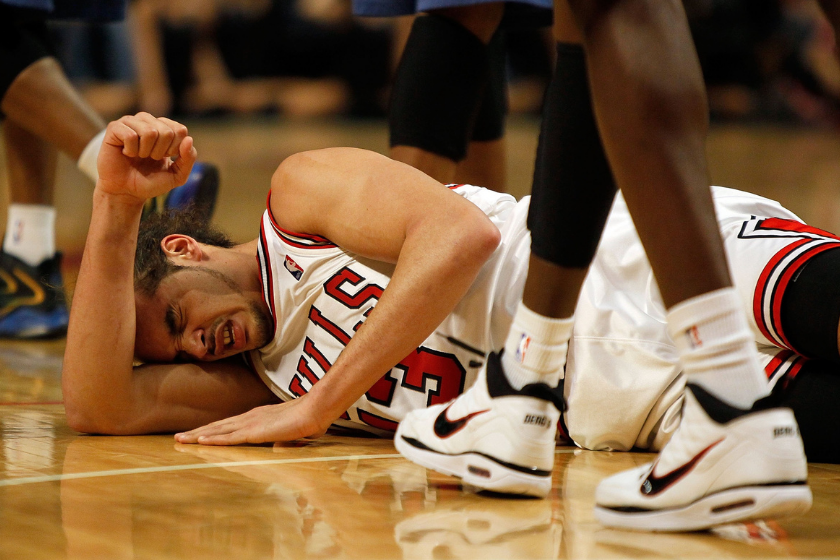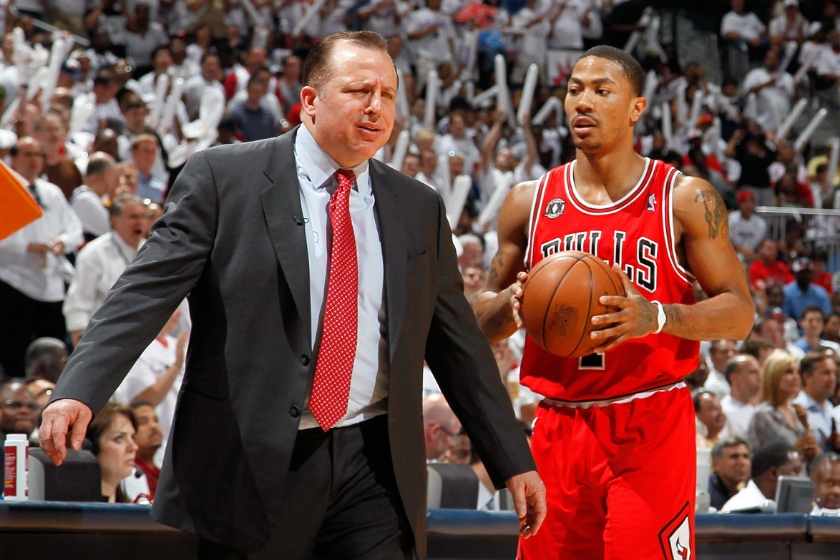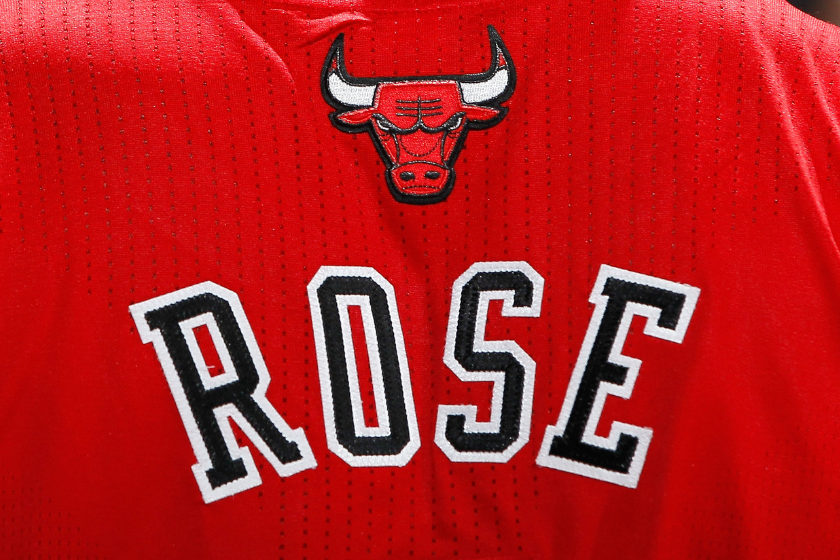The Chicago Bulls franchise is no stranger to the spotlight. The team famously won six championships between 1991 and 1998 with a team led by Michael Jordan. All good things come to an end, unfortunately, and the Bulls went through their struggles after Jordan's (second) retirement and the departures of Scottie Pippen, Steve Kerr, Dennis Rodman and Luc Longley. Illinois was a basketball state whose NBA success dwarfed that of neighboring Indiana. But the Jordan Bulls felt lightyears away from the Bulls of the new millennium.
Videos by FanBuzz
The team had a couple of slightly hopeful years in the early 2000s where they made the playoffs but were never really true contenders.
Before we go any further, we need to be clear on something: Murphy's Law. Named after its inventor, American aerospace engineer Edward A. Murphy Jr., Murphy's Law is an adage that goes "If something can go wrong, it will." Murphy worked on safety-critical systems, which means he was in charge of working on systems whose failure, or malfunction, could result in either death or serious injury, loss or severe damage to equipment, as well as environmental harm. Needless to say, Murphy's entire life was dedicated to making sure that nothing could go wrong because as his law states: if it can go wrong, it will.
What does this have to do with Derrick Rose and the Chicago Bulls? Let's jump right in.
The D-Rose Bulls: The Murphy's Law of NBA Teams
Photo by Jonathan Daniel/Getty Images
Back to the Bulls the 2008 NBA Draft when they won the No. 1 pick in the draft lottery. They selected 19-year-old Derrick Rose as the first overall pick, and thus began another resurgence of hope for Chicago fans.
D-Rose won Rookie of the Year for the 2008-09 season, averaging 16.8 points, 6.3 assists and 3.9 rebounds per game. The Bulls made it to the playoffs, finishing the regular season with a record of 41-41. Despite being so young, Rose excelled under the pressure and scored 36 points and had 11 assists in his NBA playoff debut. The 2009-10 season brought Derrick Rose his first All-Star selection and the team made the playoffs again, though they were eliminated in the first round.
After head coach Vinny Del Negro was fired, Chicago brought on Tom Thibodeau. Derrick Rose, in just his third year in the league, continued to stun. He proved himself to be not only be an elite scorer but an excellent playmaker.
MVP Rose: The Youngest in NBA History
Photo by Jonathan Daniel/Getty Images
During the 2010-2011 season, Rose averaged 25 points, 7.7 assists, 4.1 rebounds per game. He had strong support from his teammates, mainly Luol Deng, Carlos Boozer and Joakim Noah. The Bulls finished the season with a record of 62-20, the best in the league. Once again, the team went to the playoffs where they defeated the Indiana Pacers in the first round and the Atlanta Hawks in the second round. They faced off against the Miami Heat, led by LeBron James, Dwyane Wade and Chris Bosh.
Although the Bulls were defeated by the Heat in five games, the season was still a great one for Chicago. The team continued to improve and grow under Thibodeau's guidance. Derrick Rose won the award for Most Valuable Player for the 2010-11 season. At age 22, he became the youngest player to ever win the coveted award and seemed to cement himself as a perennial MVP candidate. His speed, explosiveness, playmaking and scoring ability made him one of the most exciting point guards in the league. Chicago was riding high, as they should have, with an incredible young player who just seemed to keep getting better and better.
The First Knee Injury
Photo by Jonathan Daniel/Getty Images
The 2011-12 season was an eventful one for the Bulls. During the draft the Bulls selected Jimmy Butler out of Marquette. The team had signed Rose to a five-year contract worth over more than $94 million, which was 30 percent of the team's salary cap. The league even created a new rule for Derrick Rose, appropriately nicknamed "The Derrick Rose Rule" — the rule allows players coming off of their rookie contract to be paid up to 30 percent of their team's salary cap, when the limit had previously been 25 percent.
Currently, for eligibility, players need to have either been Defensive Player of the Year in the most recent season or two of the three past seasons, named to an All-NBA team in the most recent season or two of the past three, or named Most Valuable Player. Although Rose only played 39 games due to injury he was, again, voted as a starter in the All-Star game. His teammate, Luol Deng, also made the All-Star game for the first time. The Bulls finished with a record of 50-16, tied for a league best with the San Antonio Spurs — that's two years in a row with the best record in the league after the regular season.
In the first round of the 2012 playoffs, the Bulls were playing the 8th-seeded Philadelphia 76ers, a team led by a young Jrue Holiday. It seemed like the series would be a breeze for the Bulls, but the universe had other plans. In Game 1 of the series, Tom Thibodeau made the controversial decision to leave Derrick Rose in the game even though his team was up double digits and there were less than two minutes left in regulation.
Rose went up for a shot, came down and immediately fell to the floor, writhing in pain and grabbing his knee. It was a no-contact injury which typically means it's bad — and it was. Rose tore his left ACL and was out for the rest of the postseason, at least. If losing Rose wasn't bad enough, the Bulls also lost Joakim Noah to an ankle injury in Game 3, resulting in his absence for the rest of the series. The Bulls fell to the 8th-seeded 76ers in six games, becoming just the fifth one-seed to lose to the eighth-seed in the playoffs.
The Injury Woes Continue
Photo by Jonathan Daniel/Getty Images
Rose went on to miss the entire 2012-13 season and was plagued by multiple other knee injuries in the coming years. While he's been able to stay in the league and has had a decent past couple of seasons with the Cleveland Cavaliers, Minnesota Timberwolves, Detroit Pistons and New York Knicks, he's nowhere near where he used to be.
Of course, some of that has to do with age but much of it has to do with his constant injury and recovery cycle. Rose was certainly the shining star of the 2012 Chicago Bulls team, but he wasn't the only key player who struggled with injury. Joakim Noah dealt with injury during the playoffs. His absence left much to be desired on both defense and offense, as well as emotionally — he was a passionate player who was the heart of the team. Luol Deng suffered a torn ligament in his wrist during the 2011-12 season. His loss was felt greatly as he was a defensive powerhouse — one of the best rim protectors in the game.
Tom Thibodeau & His Notorious Playing Time
Photo by Kevin C. Cox/Getty Images
As great of a coach as Thibodeau was, he faced a ton of criticism for the number of minutes his stars played. The Bulls held the league's best record two years in a row, but was that because Thibs was playing his stars more than other teams during the regular season?
Basketball is an incredibly physical and demanding sport, even more so with Tom Thibodeau as a coach. The players' bodies endure constant wear and tear, making them more susceptible to injury the more minutes they play.
Thibodeau's choice to play his stars for extensive minutes during the regular season may very well have contributed to their injury struggles. Rose's ACL injury came late during a playoff game where his team was almost guaranteed to win. It seems like it should be a no-brainer — take your stars out when you're up big (or down big) with little time left — but we're still seeing coaches make the choice to leave their players in.
Recently, we saw Philadelphia 76ers star Joel Embiid endure an orbital fracture in a playoff game where his team was up nearly 30 points with under four minutes to play in the first-round against the Toronto Raptors. Coach Doc Rivers chose to keep Embiid in that game, and it resulted in an injury that caused him to miss the following two games. It's hard to view that decision as "worth it" when it results in the absence of your best player.
Another criticism that can be made of Tom Thibodeau is his reservation about playing "greener," younger players. Remember, the Bulls drafted a young Jimmy Butler in 2011, but Jimmy Buckets only saw an average of 8.5 minutes per game. Thibodeau could have given Butler more minutes, helping the superstar-to-be develop his skills while also giving Rose a break. Butler saw more minutes the following seasons, but that had a lot to do with the fact that Rose was unavailable..ironically due to injury. Eventually, the Bulls would opt to cut their losses with the former NBA MVP, sending Rose to the New York Knicks in 2016, putting an end to the era of "what could've been."
The Derrick Rose Era in Chicago: "What Ifs" Galore
Photo by Kevin C. Cox/Getty Images
It's hard not to think about what could have been with the Bulls team of 2011-12. There are so many "what if's" — what if Derrick Rose had been able to stay healthy, especially? What kind of career would he have? Would Derrick Rose have stopped LeBron James from dominating the Eastern Conference before leaving for the Lakers? Could the Bulls have raised another championship banner at the United Center?
There's no way to truly know. That's not Murphy's Law, that's just life. But, to use another adage, hindsight is always 20/20.
